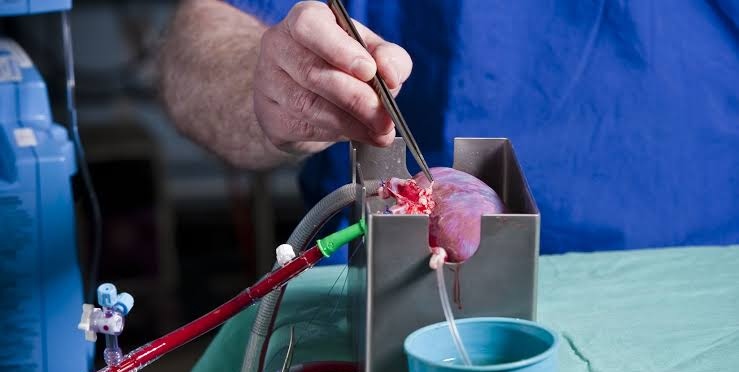By John Ikani
Researchers have successfully altered the blood type of donor kidneys in a discovery that could increase the supply of the organs for transplant.
A kidney from someone with an A blood type cannot be transplanted to someone with a B blood type, nor the other way around.
As a result, people from black and other ethnic minority groups often have to wait a year longer for a transplant than white patients because they are more likely to have the rarer B-type blood group.
But changing the blood type to the universal O will allow more transplants to take place, as this can be used for people with any blood type.
University of Cambridge researchers used a normothermic perfusion machine – a device which connects with a human kidney to pass oxygenated blood through the organ to better preserve it for future use – to flush blood infused with an enzyme through the deceased donor kidney.
The enzyme removed the blood type markers that line the blood vessels of the kidney, which led to the organ being converted to O type.
The breakthrough is the work of Professor Mike Nicholson, professor of transplant surgery at the University of Cambridge, and PhD student Serena MacMillan.
Miss MacMillan said: “Our confidence was really boosted after we applied the enzyme to a piece of human kidney tissue and saw quickly that the antigens were removed. After this, we knew that the process is feasible and we just had to scale up the project to apply the enzyme to full-size human kidneys.
“By taking B-type human kidneys and pumping the enzyme through the organ using our normothermic perfusion machine, we saw in a matter of just a few hours that we had converted a B-type kidney into an O type. It’s very exciting to think about how this could potentially impact so many lives.”
Dr Aisling McMahon, the executive director of research at Kidney Research UK, said: “The research that Mike and Serena are undertaking is potentially game-changing.”
After testing the reintroduction of other blood types, the team will look at how the approach might be used in a clinical setting.
The research, which is funded by charity Kidney Research UK, is due to be published in the British Journal of Surgery in the coming months.




































